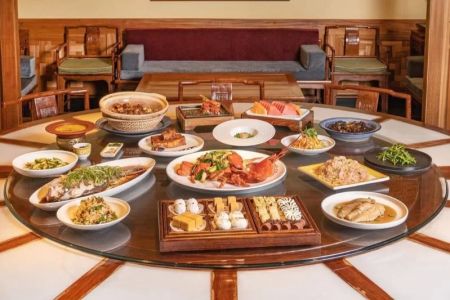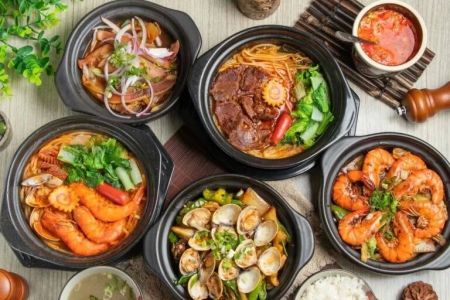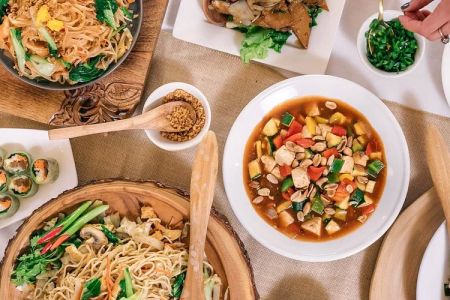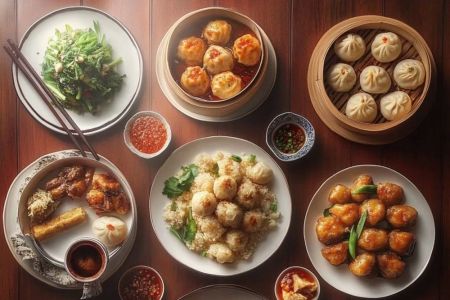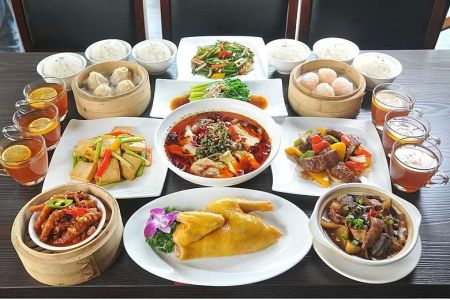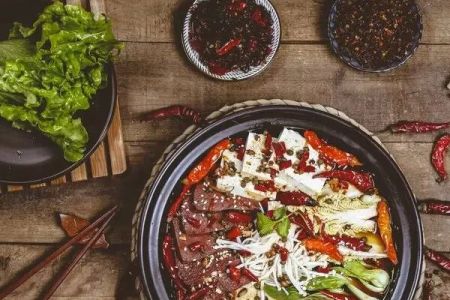Exploring the Best Chinese Food in Beijing: A Personal Journey
My First Taste of Authentic Beijing Cuisine
As an American traveler visiting Beijing, I was excited to dive into the city’s culinary scene. The city is home to a diverse array of foods that span all regions of China. But nothing could have prepared me for the vast variety of flavors, textures, and spices I would encounter during my stay. From the moment I stepped foot in the bustling streets of Beijing, I could already smell the aromas of sizzling meats and fresh vegetables filling the air.
One of my first stops was a traditional Peking duck restaurant. The aroma of crispy duck skin wafted through the door as I entered, and I was immediately greeted by friendly staff who guided me to a seat by the window. I had heard a lot about Peking duck before, but experiencing it firsthand was something entirely different. The duck was carved right in front of me, with the chef skillfully slicing the crisp skin and tender meat, all while offering a delightful explanation of how the dish was prepared. I paired the duck with pancakes, hoisin sauce, and thinly sliced scallions—a combination that made for a perfect first bite into Beijing’s food culture.
Exploring Local Markets and Street Food in Beijing
While dining at a high-end restaurant was a great introduction, the true heart of Beijing’s food scene lies in its street food and local markets. On my second day in the city, I decided to visit the Wangfujing Snack Street, a famous spot where locals and tourists alike gather to sample an incredible range of Chinese street foods. The market was vibrant and alive with activity—vendors shouted out their offerings while customers lined up to try everything from skewered meats to exotic treats.
One of the most memorable experiences was trying jianbing, a Chinese-style pancake filled with egg, vegetables, and savory sauces, often served hot off the griddle. The combination of crispy edges and soft, flavorful filling was simply irresistible. Another favorite was the skewers of lamb, beef, and chicken, grilled over open flames and coated with a variety of spices that made each bite burst with flavor.
But the street food wasn’t just about savory flavors. I also had the chance to try tanghulu, a popular Beijing treat made from candied fruit skewered on sticks. The crispy sugar coating contrasted beautifully with the tartness of the fruit, and it quickly became one of my favorite desserts during my time in the city.
The Rich History Behind Beijing’s Culinary Traditions
As I continued my food journey, I realized that Beijing’s cuisine wasn’t just about the dishes themselves—it was also about the history and culture that shaped them. Many of the foods I tried had been passed down through generations, and the culinary techniques used today have deep roots in ancient Chinese cooking traditions. Beijing, with its imperial history, has long been a center for refined cuisine.
For instance, the famous Peking duck is said to have originated in the imperial kitchens of the Ming Dynasty. The cooking technique, which involves roasting a whole duck in a specialized oven, has remained largely unchanged for centuries. Even today, the preparation of the duck is a ceremonial experience, one that connects diners to a tradition that stretches back to ancient China.
Must-Try Dishes in Beijing
During my stay, I learned that Beijing’s food scene is more than just Peking duck and street food. The city offers a wide range of dishes, each with its own unique history and flavor profile. Here are a few that I highly recommend trying if you ever find yourself in Beijing:
- Peking Duck: As I mentioned earlier, this is a must-try dish in Beijing. The duck is roasted until the skin is crispy and golden, and the meat is tender. It’s traditionally served with thin pancakes, hoisin sauce, and sliced vegetables.
- Zhajiangmian: This is a type of noodle dish that features thick wheat noodles topped with a savory sauce made from ground pork, fermented soybean paste, and vegetables. It's hearty, flavorful, and a great comfort food.
- Hot Pot: While hot pot is popular throughout China, the Beijing version features an aromatic broth filled with various meats, seafood, vegetables, and tofu. It’s a social experience, with everyone dipping their ingredients into the broth and enjoying a communal meal.
- Baozi: These steamed buns are filled with a variety of savory ingredients, such as pork, beef, or vegetables. They’re perfect for a quick breakfast or a snack while exploring the city.
Learning the Art of Chinese Tea
In addition to the food, I was also introduced to the world of Chinese tea. Beijing is home to a number of traditional teahouses, where you can sample some of China’s finest teas. I visited one such teahouse and had the chance to learn about the different types of tea, including green tea, black tea, oolong, and pu-erh. The tea ceremony was an enlightening experience, as the tea master explained the importance of water temperature, steeping time, and even the type of teapot used to brew each tea.
The experience made me realize how integral tea culture is to Chinese cuisine. It’s not just a drink—it’s an art form that accompanies many meals and represents a deep connection to Chinese traditions and philosophy.
Finding the Best Restaurants in Beijing
Whether you’re looking for upscale dining or a quick bite from a local street vendor, Beijing has something for everyone. I highly recommend checking out some of the city’s famous restaurant districts, like Sanlitun or Houhai, where you’ll find a mix of traditional eateries and modern spots offering both local and international flavors.
For an authentic Beijing dining experience, I recommend visiting restaurants that specialize in regional dishes. Many of these places will offer a more genuine taste of the city’s culinary traditions than the touristy spots you might find in more commercial areas.
Conclusion
My time in Beijing was truly unforgettable, especially when it came to exploring the city’s rich culinary offerings. The flavors, textures, and history behind each dish I tried made me appreciate Chinese cuisine in ways I hadn’t expected. Beijing is a city that invites you to not just eat, but to experience food as an integral part of its culture and history. I can’t wait to go back and continue my culinary journey through this amazing city.


